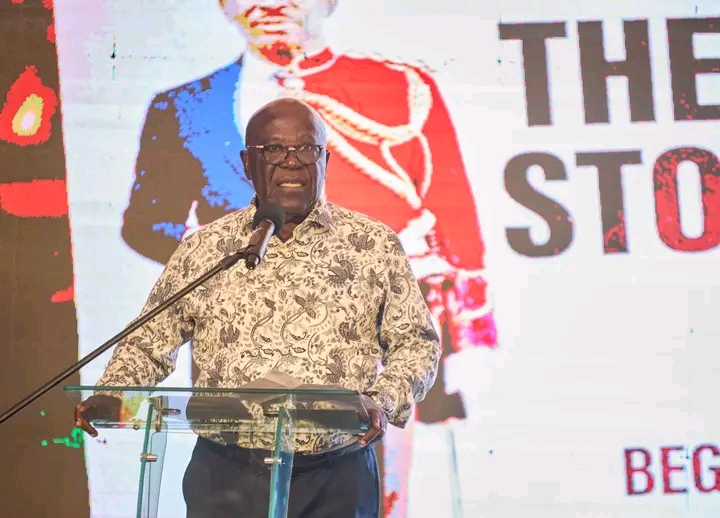By: Kenneth Appiah Bani.
Sir Sam Jonah, Executive Chairman of Jonah Capital, has strongly criticized the revocation of UT Bank’s license, describing it as “one of the most egregious acts of economic injustice perpetrated by the state.”
Speaking at the launch of The UT Story: Volume 3, authored by Prince Kofi Amoabeng, the founder of the defunct UT Bank, Sir Sam Jonah expressed deep disappointment over the government’s decision to shut down the bank six years ago. He argued that the move had far-reaching consequences, discouraging entrepreneurship and signaling the fragility of private enterprises in Ghana.
A Blow to Entrepreneurship
According to Sir Sam Jonah, UT Bank’s collapse was more than just a financial event—it was a symbolic setback for Ghanaian entrepreneurship. He emphasized that it illustrated the harsh reality that, despite diligence and compliance with regulations, businesses remain vulnerable to political interference.
“It was not only the collapse of a bank but a blow to the very idea that Ghanaians could build something of their own and succeed at the highest level. It sent a chilling message to entrepreneurs and innovators that no matter how hard you try or how well you play by the rules, your success can easily be undone by those in power,” he remarked.
He also reflected on Prince Kofi Amoabeng’s journey, describing it as a story of both triumph and betrayal.
“This is perhaps the most profound and painful chapter in Kofi’s journey. It speaks not only of his success but also of betrayal, the harsh realities of power, and the fragile nature of businesses when entangled with politics,” he added.
Call for a Business-Friendly Environment
Sir Sam Jonah used the occasion to advocate for a stable and predictable business environment, urging policymakers to protect businesses from undue political interference. He warned that excessive state involvement in the private sector erodes investor confidence and hampers economic growth.
“The seizure of his bank was one of the most egregious acts of economic injustice perpetrated by the state—a move driven by malice, deceit, envy, and jealousy,” he stated.
He cautioned that Ghana’s economic progress depends on leaders supporting and nurturing private enterprises rather than allowing political interests to dictate the fate of successful businesses.
Kofi Amoabeng’s Resilience
Despite the challenges he has faced, Prince Kofi Amoabeng remains optimistic about the future. He encouraged young entrepreneurs to take bold steps to transform the nation, emphasizing that his vision extends beyond reviving UT Bank.
“The vision should not necessarily be about bringing back the bank. The vision I have now is bigger—it’s about grooming and creating leaders with the right values to change the narrative,” he said.
The event, attended by top business executives and industry leaders, saw the first copy of The UT Story: Volume 3 sold for GHS 50,000, underscoring the keen interest in Amoabeng’s experiences and insights.







